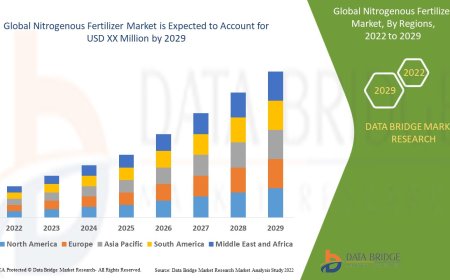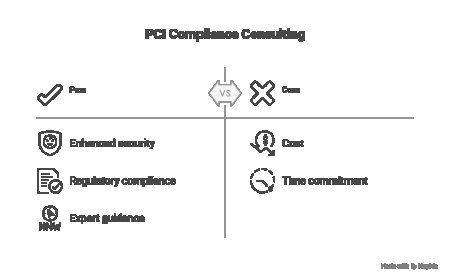Unlocking Efficiency: How DevOps Services Transform Modern Software Development
Discover how DevOps services transform modern software development by boosting efficiency, automating workflows, improving collaboration, and accelerating delivery.

In todays fast-paced digital world, software development is not just about writing codeits about delivering reliable, scalable, and user-friendly solutions quickly and continuously. Thats where DevOps services come into play. DevOps is a cultural and technical shift that bridges the gap between development (Dev) and operations (Ops), focusing on collaboration, automation, and continuous delivery. Businesses adopting DevOps are seeing massive improvements in software deployment speed, quality, and operational stability.
This blog explores how DevOps services are transforming modern software development by making it more efficient, adaptive, and outcome-driven. Well break down the key principles, benefits, and how companies, especially those building scalable solutions like clone apps, can benefit from embracing DevOps.
What is DevOps?
Understanding the DevOps Concept
DevOps is not just a set of tools or processesit's a mindset that combines software development and IT operations into one smooth, collaborative workflow. Traditionally, developers would write code and hand it over to a separate operations team to deploy and manage. This siloed structure often led to miscommunication, delays, and inconsistent environments.
DevOps breaks down these silos, allowing teams to work together throughout the application lifecyclefrom planning and development to testing, deployment, and maintenance. It promotes practices like automation, continuous integration, and continuous delivery (CI/CD) to increase speed and efficiency.
Core Principles of DevOps
- Collaboration: DevOps encourages constant communication between developers, testers, and operations teams.
- Automation: Tasks like code integration, testing, and deployment are automated to reduce human error.
- Continuous Feedback: Teams get real-time insights and feedback to improve the software rapidly.
- Monitoring: Real-time monitoring ensures systems are always running optimally.
Why DevOps is Essential in Modern Software Development
Faster Time to Market
In a competitive market, getting your product out quickly can make or break your business. DevOps speeds up the development cycle through automation and streamlined workflows. With CI/CD pipelines in place, code changes can be tested and deployed faster, reducing the time it takes to launch new features or products.
Improved Collaboration
DevOps breaks down the barriers between different teams. Developers and operations teams work closely together, which results in better understanding, shared responsibilities, and fewer conflicts. This collaboration leads to fewer bugs, smoother deployments, and faster issue resolution.
Higher Quality Software
Continuous testing and automated feedback loops ensure that issues are caught early in the development process. As a result, the software is more stable, secure, and reliable. Automated testing helps reduce bugs in production, which is crucial for customer satisfaction and trust.
Scalability and Flexibility
Modern software must be scalable to handle increasing user demand. DevOps practices make it easier to scale applications, infrastructure, and teams. Using infrastructure as code (IaC), organizations can deploy multiple environments in a consistent and repeatable manner.
Key DevOps Services That Drive Transformation
Continuous Integration and Continuous Deployment (CI/CD)
CI/CD is the heart of DevOps. Continuous Integration means integrating code into a shared repository multiple times a day. Each integration is automatically tested, ensuring early detection of issues. Continuous Deployment automates the release of code to production, ensuring faster and reliable updates without manual intervention.
Infrastructure as Code (IaC)
IaC allows developers to manage and provision infrastructure through code, not manual processes. This means setting up servers, databases, and networks becomes faster and more predictable. Tools like Terraform and Ansible are commonly used to implement IaC in DevOps environments.
Automated Testing
Testing is no longer a step done at the end of development. In DevOps, automated tests run continuously to catch bugs and performance issues early. This leads to faster feedback, better code quality, and shorter development cycles.
Monitoring and Logging
With continuous monitoring, teams can track performance, detect issues, and ensure availability 24/7. Logs are used to diagnose problems, predict failures, and understand user behavior. Monitoring tools like Prometheus, Grafana, and ELK Stack help in maintaining system health.
Containerization and Orchestration
Containers, like those offered by Docker, allow applications to run consistently across environments. Kubernetes, a popular orchestration tool, manages containerized applications and automates scaling, deployment, and management. Together, they ensure software can run smoothly, regardless of the environment.
How DevOps Supports Agile and Lean Methodologies
DevOps and Agile: A Perfect Match
DevOps and Agile often go hand in hand. Agile focuses on iterative development, while DevOps ensures that each iteration is efficiently built, tested, and deployed. This creates a feedback-driven loop that helps teams deliver value faster and more reliably.
Lean Thinking in DevOps
DevOps aligns with lean principles by minimizing waste, optimizing processes, and focusing on delivering customer value. Automation removes repetitive manual tasks, while continuous improvement ensures processes evolve to meet changing demands.
Real-World Benefits of DevOps Services
Reduced Failures and Faster Recovery
DevOps environments experience fewer failures thanks to frequent testing, smaller code changes, and real-time monitoring. When issues do arise, teams can resolve them quickly because of automated rollbacks and consistent deployment environments.
Enhanced Customer Experience
When updates are frequent and reliable, users enjoy a smoother experience with fewer bugs and better features. Quick responses to feedback also lead to higher customer satisfaction.
Stronger Security
DevOps incorporates security early in the development cycle through a practice known as DevSecOps. This means potential vulnerabilities are identified and resolved before they reach production, leading to more secure applications.
Cost Savings Over Time
Although there may be upfront costs for setting up DevOps tools and training teams, the long-term savings are substantial. Automated processes reduce the need for manual intervention, fewer bugs reduce downtime, and faster releases mean quicker returns on investment.
Read more: Why Cloud Solutions Consulting is Essential for Digital Transformation?
How Clone App Development Companies Benefit from DevOps
Scaling Products Quickly
Clone app development companies often replicate successful app modelslike food delivery, fitness, or taxi appsfor various clients. Using DevOps, they can reuse infrastructure, automate deployment, and roll out updates quickly for multiple projects.
Handling Multiple Clients with Ease
With multiple clients expecting timely updates, DevOps provides a streamlined way to handle code changes and deployments efficiently. Infrastructure as Code helps maintain consistency across different client environments.
Improving Reliability and User Trust
In clone app models, reliability and performance are key. DevOps ensures applications stay up-to-date, secure, and error-free, which helps build trust and retain users in a competitive market.
Challenges in DevOps Adoption and How to Overcome Them
Cultural Resistance
Adopting DevOps often requires a mindset shift across the organization. Teams need to embrace collaboration and shared responsibilities. Training, leadership support, and clear communication can help overcome resistance.
Tool Overload
There are numerous tools in the DevOps ecosystem, which can overwhelm teams. Its important to choose tools that align with your project needs and ensure they integrate well with existing systems.
Skill Gaps
DevOps involves automation, scripting, infrastructure management, and more. Organizations may face a lack of skilled professionals. Upskilling teams or partnering with experienced DevOps service providers can help bridge this gap.
Conclusion
DevOps is no longer optional for businesses that want to stay competitive in todays software-driven market. It offers a smart, structured, and highly efficient way to build, test, and deliver applications. By fostering collaboration, automating workflows, and integrating continuous feedback, DevOps transforms traditional development into a flexible, faster, and more reliable process.
Especially for companies operating in fast-moving spaces like clone app development company, the benefits are even more significant. DevOps helps these businesses deliver consistent, scalable, and high-performing solutions to their clients. As the demand for speed and quality continues to rise, embracing DevOps is a necessary step toward sustainable growth and innovation.
FAQs
What is the main goal of DevOps in software development?
The main goal of DevOps is to shorten the software development lifecycle while delivering high-quality applications through automation, collaboration, and continuous feedback.
How does DevOps improve software quality?
DevOps improves software quality by integrating automated testing, real-time monitoring, and continuous integration, which helps catch bugs and performance issues early.
Can DevOps be applied to all types of software projects?
Yes, DevOps can be adapted to a wide range of projects, from small-scale web apps to large enterprise systems. Its principles can scale depending on the project's complexity.
Is DevOps only for large companies?
Not at all. Startups and mid-sized businesses can also benefit from DevOps. In fact, it helps smaller teams move faster and compete more effectively in the market.
Whats the difference between Agile and DevOps?
Agile focuses on the iterative development process and customer collaboration, while DevOps emphasizes the automated delivery, deployment, and operations side. Together, they create a powerful software delivery framework.







































